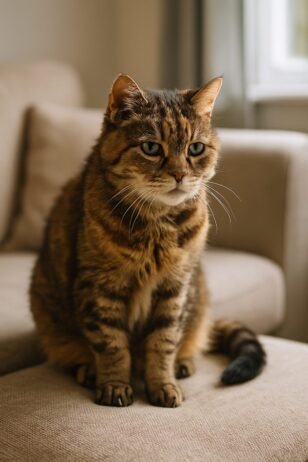Dementia in Cats
- 1 October 2025
- BuyAPet Editorial Team
- All Cats, Cat Health, Cats and Dogs
Dementia in Cats
As cats age, some may experience dementia, also known as feline cognitive dysfunction. Learn how to recognise the signs, understand the causes, and support your cat’s quality of life as they get older.
Contents
What is dementia in cats?
Dementia, or feline cognitive dysfunction, is a condition where ageing affects a cat's brain function, leading to confusion, memory loss, and behavioural changes.
While there is no cure, early recognition and proper care can greatly improve a cat's comfort and wellbeing.
Signs and symptoms
Disorientation
Your cat may seem confused, wander aimlessly, or get stuck in corners or behind furniture.
Sleep pattern changes
Sleeping more during the day and restlessness or meowing at night.
Litter tray accidents
Forgetting where the litter box is or not using it correctly.
Personality changes
Becoming withdrawn, irritable, or unusually clingy.
Causes and risk factors
Ageing brain changes
The most common cause, similar to dementia in humans.
Poor circulation
Reduced blood flow to the brain may contribute to cognitive decline.
Underlying health conditions
Kidney disease, hypertension, or thyroid problems can increase risk.
Lack of stimulation
Mentally unstimulated cats may experience cognitive decline earlier.
Caring for a cat with dementia
- Vet check-ups: Rule out other health conditions and confirm dementia diagnosis.
- Consistent routine: Feeding, play, and bedtime should stay predictable to reduce confusion.
- Safe environment: Remove hazards and make essentials like food and litter trays easy to access.
- Stimulation: Gentle play and puzzle feeders can help keep your cat's mind active.
- Comfort care: Warm, quiet resting spots and plenty of affection improve quality of life.
